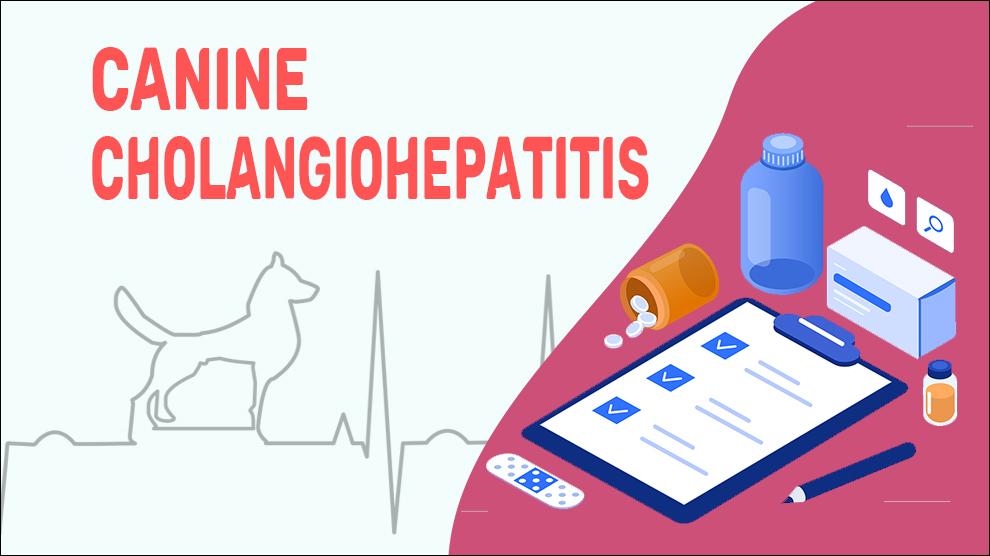What Is Canine Cholangiohepatitis?
Cholangiohepatitis (sometimes referred to as cholangitis) is an inflammatory condition of the biliary tree, gall bladder, and/or liver. This condition is considerably more common in cats than dogs; in fact, it is the second most prevalent liver disease seen in cats.
This disease terminology really sounds odd and so are the symptoms, they also present really vague symptoms. Besides these names, multifactorial nature and several different causes of the disease exist, which all have their own names.
Moreover, sometimes other disorders/conditions can occur at the same time as cholangiohepatitis, which makes identifying the cause of the symptoms rather difficult.
Most commonly, Cholangiohepatitis in dogs occurs due to a bacterial or viral infection.
Symptoms Of Canine Cholangiohepatitis
Clinical signs of cholangiohepatitis are variable:
- Enlargement of the liver (hepatomegaly)
- Hyperthermia
- Abdominal fluid accumulation
- Anorexia to different degrees
- Hyperbilirubinemia
- Hypercholesterolemia
- Weight loss, Dehydration
- Vomiting, Diarrhea
- Icterus (jaundice)
- Right-sided discomfort upon examination
- Inappetence
Treatment Options For Canine Cholangiohepatitis
Infectious cholangiohepatitis treatment is targeted toward the breaching pathogen.
Broad-spectrum antibiotics are initially started and once cultures and blood tests have been obtained, then the antibiotic choice may be changed.
For the anorexic, nauseated, and systemically ill dogs, hospitalization for supportive therapy such as intravenous fluids might be required.
When infectious cholangiohepatitis exacerbate immune-mediated complication- corticosteroids (prednisone, prednisolone, dexamethasone, triamcinolone) and other immunomodulating medications (such as Cyclosporine (CSA), Azathioprine, Mycophenolate mofetil) are provided.
The prognosis is excellent after proper treatment and the dog is expected to begin recovering after 1 week of medication management. The treatment can go on for up to 2 months but your pet may be cured even earlier.
Home Remedies For Canine Cholangiohepatitis
Follow the instructions given by your veterinarian for the entire recommended time period. No matter how badly you want relief for your dogs or what you hear from other dog owners, talk with your vet before trying any home remedy.
Adjunctively to standard therapy, Liver supplements are often used for cholangiohepatitis and these include silybin, S-adenosylmethionine (Sam E), milk thistle, and glutathione.
Ursodiol (Ursodeoxycholic acid) use is better established in dogs. It is a naturally-occurring bile acid that improves flow through diseased bile ducts and helps reduce the viscosity of bile.
Prevention Of Canine Cholangiohepatitis
Prevention of canine cholangihepatitis can be done only by preventing underlying causes.
Pet owners should discuss how to prevent the possibility of bile disorders with their vet.
Affected Breeds Of Canine Cholangiohepatitis
Bedlington Terrier, Labrador Retriever, Cocker Spaniel, Doberman Pinscher, Skye Terrier, Standard Poodle, Springer Spaniel, Chihuahua, Maltese, West Highland White Terrier
Causes Of Canine Cholangiohepatitis
Causes of Cholangiohepatitis:
Bacteria
- Salmonella - spread through contaminated food, easily passed by dogs in their saliva and feces.
- Campylobacter jejuni - This microaerophilic enteric bacterium’s transmission is through undercooked or contaminated meat/meat products and or raw milk.
- Coccidiosis - this protozoan parasite destructs your dog’s intestinal walls, transmission through eating dirt or feces infected with coccidia.
- Streptococcus spps - This facultatively anaerobic is commonly found in the throat and skin that occasionally turns into an infection (like humans - strep throat ).
Conditions that can cause the bacterial movement in a bile duct:
- Cholestasis (decrease in bile flow or complete stopping).
- Inflammatory bowel disease (IBD).
- Gallbladder stones.
- Chronic pancreatitis (inflammation of the pancreas).
- Unhealthy gut.
- A weakened immune system.
Other causes:
- Chronic interstitial nephritis (a form of kidney disease).
- Tumors.
- Gallstones.
- Thickened Gallbladder secretions that are unable to be excreted by your dog.
- Disorders that impede bile flow.
When To See A Vet For Canine Cholangiohepatitis
An appropriate diagnosis of this disease is always best left to your vet to make sure that it is not progressing into a serious form.
Dogs affected with multiple organ diseases have significantly shorter survival times if left untreated.
However, as cholangiohepatitis is slowly progressive, dogs can survive several years after initial diagnosis even without therapeutic interventions.
Food Suggestions For Canine Cholangiohepatitis
The checklist for Cholangihepatitis:
- Appropriately formulated fresh food diet.
- A big ‘NO’ to dry foods.
- Protein (moderate levels of bioavailable protein).
- Leafy greens and fresh vegetables.
- Add safe dairy products (cottage cheese, ricotta cheese, and yogurt).
- Omega fats and antioxidants.
- Omega-6 and omega-3 in a 4:1 ratio.
- Low in Phosphorus (0.2% - 1% dry matter).
- Stick to smaller, tasty meals ( feed him 4-5 times a day).
- Regulated treats that are part of the daily calorie intake.
- Avoid foods high in copper (organ meats).
High-fiber foods:
- Whole grain bread, rice, and cereal.
- Green beans peas.
- Beet Pulp.
- Flaxseed.
Lean meats or meat alternatives:
- Chicken breast.
- Ground meat(beef, pork, chicken, turkey).
- Salmon, trout, herring.
- Whitefish like cod and halibut.
Conclusion
As cholagiohepatitis is not a sign and disease in itself, treatment will depend on the predisposing cause.
There is no evidence to support the reoccurrence of cholangiohepatitis. However, always follow the progress with regular checkups and keep an eye on any appearance of symptoms you noticed in the past.

















